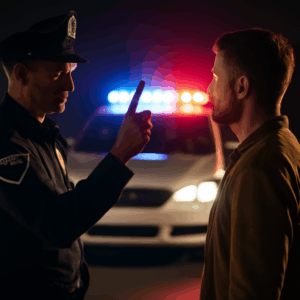Understanding the DUI Process in Greenville, SC
If you’ve been stopped by law enforcement and suspected of DUI in Greenville, South Carolina, there are a series of tests that officers may use to determine your level of intoxication. These typically include a breathalyzer test and a field sobriety test. While both tests are designed to help officers assess whether a driver is impaired, there are key differences in how they are administered and how they are used in court.
The breathalyzer test measures the blood alcohol concentration (BAC) in your system. In South Carolina, the legal limit for BAC is 0.08%. If you test below this level, technically, you’re not considered legally impaired under state law. However, officers can still arrest you if they believe you’re under the influence based on other factors such as your behavior or performance on the field sobriety test.
Field sobriety tests, on the other hand, are a series of physical and mental exercises used by law enforcement to determine a person’s ability to drive safely. These tests may include tasks like walking in a straight line, standing on one leg, and following an officer’s finger with your eyes. Failing these tests doesn’t automatically indicate that you’re over the legal limit for alcohol consumption, and these tests are not always reliable.
What Happens if You Pass the Breathalyzer but Fail the Field Sobriety Test?
You might be wondering whether it’s possible to fight a DUI charge if you passed the breathalyzer but failed the field sobriety test. The short answer is yes, it is possible. Passing the breathalyzer test is a strong indicator that your BAC was below the legal limit, which can serve as a solid foundation for your defense. However, it’s important to remember that law enforcement officers often rely on field sobriety tests to establish probable cause for arrest. These tests are subjective and can be influenced by many factors that have nothing to do with your level of intoxication. For instance, poor weather conditions, your physical health, or even nervousness could negatively impact your ability to perform on these tests. If you failed the field sobriety test, but your breathalyzer test was under the legal limit, you have a few possible defenses to consider. First, your attorney can challenge the validity of the field sobriety tests themselves. These tests are not foolproof and can be affected by numerous factors unrelated to alcohol consumption. Second, we can argue that the breathalyzer test is the most reliable indicator of impairment and that passing this test should be the primary factor in determining whether or not you were impaired.Possible Defenses for DUI Cases Involving Field Sobriety Test Failures
There are several ways to approach a DUI case where the defendant passed the breathalyzer but failed the field sobriety test. Below are some common defense strategies that may apply to your case:Field Sobriety Tests Are Subjective
Field sobriety tests are not always reliable. These tests depend on the officer’s judgment and can be influenced by factors like your physical condition, anxiety, or even the terrain where the test is administered. If you failed these tests, your attorney may be able to challenge the validity of the officer’s observations.Improper Administration of the Field Sobriety Test
For field sobriety tests to be valid, they must be administered properly. If the officer didn’t follow the correct procedures, this could be a valid argument in your defense. A failure to properly instruct you, improper timing of the tests, or failure to consider medical conditions that could affect performance could all play a role in disputing the results.Related Videos
Refusing Field Sobriety Tests
Choosing a DUI Attorney













